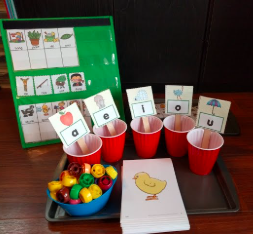Helping preschoolers learn phonics can be both fun and educational when it’s done through play. Phonics forms the foundation for reading by teaching children the relationship between letters and their sounds. With interactive and joyful games, kids not only learn faster but also develop a genuine love for language and reading.
Why Use Phonics Games? Young children learn best when they’re actively engaged. Phonics games offer a hands-on approach that captures their attention, builds their confidence, and supports memory through repetition. These games make abstract concepts more concrete and easier to understand.
1. Letter Sound Treasure Hunt Hide letter cards around the room and ask children to find the letter that makes a specific sound. For example, “Can you find the letter that says /b/?” This game encourages listening skills and helps reinforce letter-sound associations.
2. Phonics Hopscotch Draw a hopscotch grid with letters or simple words in each square. As children jump on each square, they say the letter sound or read the word aloud. It blends physical movement with phonics practice, making learning dynamic and energetic.
3. Sound Matching Cards Create cards with pictures and others with letters. Children match the picture (like a cat) with the beginning sound card (the letter C). This improves phonemic awareness and helps with sound recognition.
4. Singing the Alphabet Sounds Use familiar tunes to sing songs that focus on letter sounds. For example, instead of the traditional ABC song, sing, “A says /a/, /a/, apple! B says /b/, /b/, ball!” Music enhances memory and makes repetition enjoyable.
5. Feed the Sound Monster Create a paper monster with a mouth that opens. Offer children different letter or picture cards and ask them to “feed” the monster the ones that start with a target sound. For example, feed the monster only things that begin with /m/. It’s a fun way to practice sorting sounds.
Making Learning Meaningful The goal of using phonics games is to build foundational literacy skills in an engaging and supportive environment. When children enjoy the process, they are more likely to stay motivated and confident. By integrating these playful activities into daily routines, parents and educators can create a rich learning experience that prepares young learners for future reading success.
With a little creativity and enthusiasm, phonics practice can become the highlight of any preschooler’s day!


